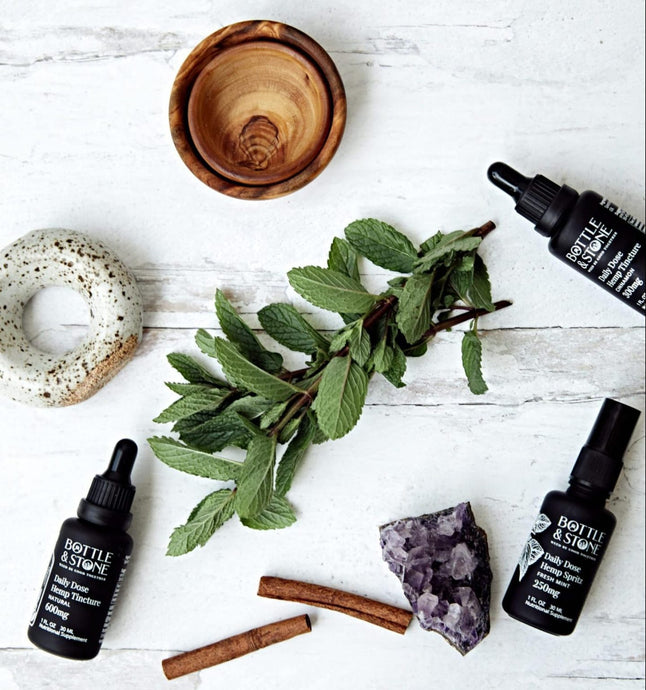As a commonly asked question, we wanted to set the record straight and share the differences between CBD and THC, for those of you who may not know.
Hemp vs. Marijuana
Hemp and marijuana both derive from the cannabis sativa family, but due to each plant’s biological structure, they differ distinctly. While both hemp and marijuana plants can produce CBD, the defining characteristic between the two is based on a single factor— the amount of THC in the plant, which impacts whether or not the user will get high.
Hemp is a member of the cannabis sativa species and contains 0.3% or less of THC, the element in marijuana that produces the psychoactive “high” associated with the plant. It contains all of the same cannabinoids as marijuana, except for the THC.
CBD can be extracted from marijuana or hemp (Bottle & Stone’s happens to be hemp, and is legal federally). As a non-psychoactive compound, CBD won’t make the consumer feel high.
CBD vs. THC
Both CBD and THC have the same molecular structure of 30 hydrogen atoms, 21 carbon atoms, and 2 oxygen atoms. However, even though their chemical structures are so similar, the way these compounds interact with the body are incredibly different.
Now CBD can be extracted from marijuana or hemp (ours happens to be hemp— a cannabis plant that contains less than 0.3% THC). As a non psychoactive compound, CBD won’t make the consumer feel high. THC is the element in marijuana that has psychoactive qualities, producing the “high” associated with the plant.
Bottle & Stone crafts organic CBD-based remedies and is not to be confused with the THC compound that gives the “high” sensation.
Legality
While the legality of cannabis is ever-evolving and different in each country, we’d like to focus on the United States as it’s the home of our brand.
In 2018, the Farm Bill was passed in Congress. This Bill removed hemp from the controlled list of substances. Because our products are made from hemp, Bottle & Stone is legal in all 50 states.
If you choose to buy products made from marijuana, the legality becomes iffy, and is dependent on the laws in your state. 33 states (plus Washington D.C.) have passed laws regarding marijuana legality, but in general it’s best to choose a CBD product made from hemp, to avoid legal penalties.
Side Effects
In general, CBD is tolerated well by most people. The reason many people reach for CBD, instead of THC, is because of the lessened side effects in comparison.
THC can cause side effects like dry mouth, red eyes, issues with coordination, anxiety and an increased heart rate.
CBD can cause side effects like fatigue, weight loss, changes in appetite, and diarrhea.
Dependency and Abuse
CBD exhibits no effects that are indicative that it can be abused or is potential for dependence. It’s non-habit forming, meaning that the first usage is relatively free from risk. The World Health Organization ran a study and in comparison to both a placebo and THC, “ CBD was placebo-like on all measures (including visual analogue scales, psychomotor performance such as the digit symbol substitution task, heart rate and blood pressure) compared to active cannabis, which produced abuse-related subjective effects as well as a range of other side effects.”
Bottom line
Both THC and CBD can be helpful in providing a natural source of wellness to your daily routines. Both have incredible medical benefits. The main differences however lie in the legality and side effects of the products. In general, CBD is tolerated better in most bodies, and is legal in all 50 states. We craft organic, CBD remedies made from hemp to ensure that our products can each anyone— no matter the state they’re in (and Canada!)
